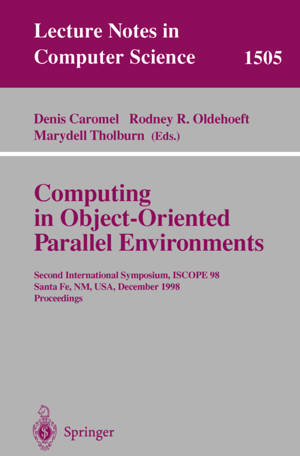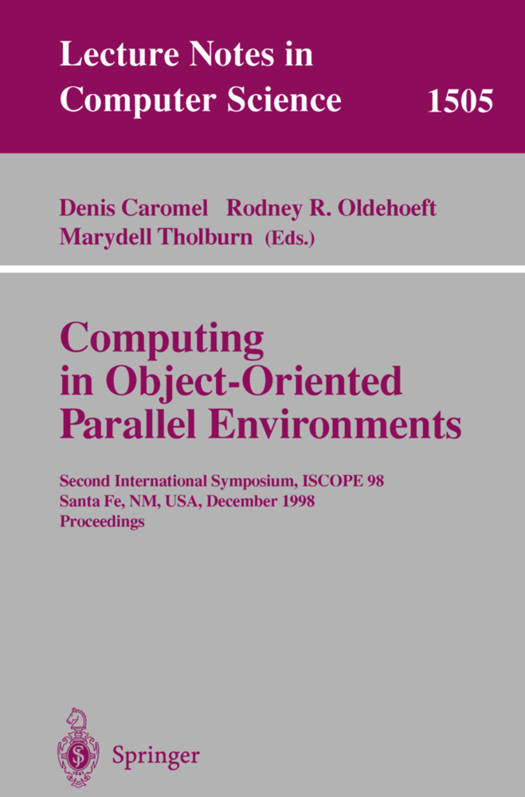
- Afhalen na 1 uur in een winkel met voorraad
- Gratis thuislevering in België vanaf € 30
- Ruim aanbod met 7 miljoen producten
- Afhalen na 1 uur in een winkel met voorraad
- Gratis thuislevering in België vanaf € 30
- Ruim aanbod met 7 miljoen producten
Zoeken
Computing in Object-Oriented Parallel Environments
Second International Symposium, Iscope 98, Santa Fe, Nm, Usa, December 8-11, 1998, Proceedings
€ 52,95
+ 105 punten
Omschrijving
This volume contains the Proceedings of the International Symposium on C- puting in Object-Oriented Parallel Environments (ISCOPE '98), held at Santa 1 Fe, New Mexico, USA on December 8{11, 1998. ISCOPE is in its second year, and continues to grow both in attendance and in the diversity of the subjects covered. ISCOPE'97 and its predecessor conferences focused more narrowly on scienti c computing in the high-performance arena. ISCOPE '98 retains this emphasis, but has broadened to include discrete-event simulation, mobile c- puting, and web-based metacomputing. The ISCOPE '98 Program Committee received 39 submissions, and acc- ted 10 (26%) as Regular Papers, based on their excellent content, maturity of development, and likelihood for widespread interest. These 10 are divided into three technical categories. Applications: The rst paper describes an approach to simulating advanced nuclear power reactor designs that incorporates multiple local solution - thods and a natural extension to parallel execution. The second paper disc- ses a Time Warp simulation kernel that is highly con gurable and portable. The third gives an account of the development of software for simulating high-intensity charged particle beams in linear particle accelerators, based on the POOMA framework, that shows performance considerably better than an HPF version, along with good parallel speedup.
Specificaties
Betrokkenen
- Uitgeverij:
Inhoud
- Aantal bladzijden:
- 242
- Taal:
- Engels
- Reeks:
- Reeksnummer:
- nr. 1505
Eigenschappen
- Productcode (EAN):
- 9783540653875
- Verschijningsdatum:
- 25/11/1998
- Uitvoering:
- Paperback
- Formaat:
- Trade paperback (VS)
- Afmetingen:
- 156 mm x 234 mm
- Gewicht:
- 362 g

Alleen bij Standaard Boekhandel
+ 105 punten op je klantenkaart van Standaard Boekhandel
Beoordelingen
We publiceren alleen reviews die voldoen aan de voorwaarden voor reviews. Bekijk onze voorwaarden voor reviews.









